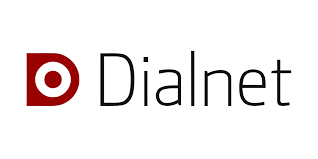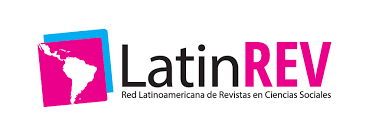Proposal of a methodological approach for creative pedagogies concerning issues of sustainable development
DOI:
https://doi.org/10.18050/eduser.v10n2a4Keywords:
pedagogies of creativity, pedagogies of sustainable development, educational practices sustainableAbstract
In this talk, we will discuss a methodological proposal for addressing education for sustainable development using creative pedagogies. The primary purpose is to establish a technique that uses art as a connection between learning and creativity, so allowing students to acquire skills connected to sustainability in a variety of scientific subjects. Students engage in experiential learning and their ability to think critically when given the opportunity to interact with works of art. The presentation emphasizes that education for sustainability is not restricted to instruction in ecology alone; rather, it also encompasses a vision of the future and a shift in the way that researching and modeling the future is done. The methodological proposal is broken down into various steps, the first of which is the diagnosis of the problem. Students are encouraged to select a contemporary artistic expression that addresses concerns pertaining to sustainability, and then to compose an analytical essay regarding both the artistic expression and its connection to the subject matter that is being researched. In the context of an exhibition, these articles would be presented in conjunction with the pieces of art that were chosen. The presentation refers to several studies and pieces of research that are associated with education for sustainability, creative pedagogy, and the use of art in the classroom. The fields of research that focus on social learning, human-environment integration, environmental management, and the assessment of sustainability are highlighted.
References
Baker, L. R., Phelan, S., Woods, N. N., Boyd, V. A., Rowland, P., & Ng, S. L. (2021). Re-envisioning paradigms of education: towards awareness, alignment, and pluralism. Advances in Health Sciences Education, 26, 1045-1058. https://doi.org/10.1007/s10459-021-10036-z
Bolmsten, J., & Kitada, M. (2020). Agile social learning–capacity-building for sustainable development in higher education. International Journal of Sustainability in Higher Education, 21(7), 1563-1586. https://doi.org/10.1108/IJSHE-07-2019-0212
Belyakova, I. G., & Mileshko, A. L. (2020). Arte y sostenibilidad ambiental. Formación de la identidad ecológica por medio de la coreografía. Observatorio de la Cultura, 17 (2), 187-200. https://doi.org/10.25281/2072-3156-2020-17-2-187-200
Breen, K., Greig, M., & Wu, H. (2023). Learning green social work in global disaster contexts: A case study approach. Social Sciences, 12(5), 288. https://doi.org/10.3390/socsci12050288
Castellanos, R., Sorhegui-Ortega, R., Vergara-Romero, A., & Macias Quintosa, T. (2021). Universidad en la Sociedad del conocimiento. En VIII Congreso Internacional “Tecnología, Universidad y Sociedad”. Samborondón, Ecuador.
Ceulemans, G., & Severijns, N. (2019). Challenges and benefits of student sustainability research projects in view of education for sustainability. International Journal of Sustainability in Higher Education, 20(3), 482-499. https://doi.org/10.1108/IJSHE-02-2019-0051
d’Angelo, M. J., & Brunstein, J. (2017). Social learning for sustainability: supporting sustainable business in Brazil regarding multiple social actors, relationships and interests. Managing Organizations for Sustainable Development in Emerging Countries, 79-95. https://doi.org/10.1080/13504509.2014.902868
Demssie, Y. N., Biemans, H. J., Wesselink, R., & Mulder, M. (2023). Fostering students’ systems thinking competence for sustainability by using multiple real-world learning approaches. Environmental Education Research, 29(2), 261-286. https://doi.org/10.1080/13504622.2022.2141692
Dendane, M. E., & Dendane, Z. (2023). Social Networks and Language Applications, Other Means of Learning? Students of English at Tlemcen University Arab World English Journal (AWEJ) Special Issue on Communication and Language in Virtual Spaces, January 2023: 165-176. https://dx.doi.org/10.24093/awej/comm1.13
De Souza Santana, N., Chemin, D. C. L., Freitas, C. C. G., Giordani, A. T., & dos Santos Rosa, S. (2020). Mobile learning e pedagogia social: uma relação a ser explorada. Revista Tecnologia e Sociedade, 16(40), 1-15. https://doi.org/10.3895/rts.v16n40.9598
El-Hani, C. N., & Mortimer, E. F. (2007). Multicultural education, pragmatism, and the goals of science teaching. Cultural studies of science education, 2, 657-702. https://doi.org/10.1007/s11422-007-9064-y
Favarin, R. R., Trindade, N. R., Ávila, L. V., & Trevisan, M. (2020). Aprendizagem Social e Desenvolvimento Sustentável: Um Estudo Bibliométrico na Eeb of Science da Última Década. Revista Gestão Organizacional, 13(3), 184-203. https://doi.org/10.22277/rgo.v13i3.4906
Grachev, V. A., Ilyin, I. V., Ursul, A. D., Ursul, T. A., & Andreev, A. I. (2017). Educación para el desarrollo sostenible en Rusia: problemas y perspectivas (informe analítico de expertos). Moscú: Prensa de la Universidad de Moscú.
Haque, C.E., Berkes, F., Fernández-Llamazares, Á., Ross, H., Chapin III, F.S., Doberstein, B., Reed, M.G., Agrawal, N., Nayak, P.K., Etkin, D., Doré, M. and Hutton, D. (2022), "Social learning for enhancing social-ecological resilience to disaster-shocks: a policy Delphi approach", Disaster Prevention and Management, 31(4), 335-348. https://doi.org/10.1108/DPM-03-2021-0079
Hellquist, A., & Westin, M. (2019). On the Inevitable Bounding of Pluralism in ESE—An Empirical Study of the Swedish Green Flag Initiative. Sustainability, 11(7), 2026. https://doi.org/10.3390/su11072026
Hughes, H., Wolf, R., & Foth, M. (2017), Informed digital learning through social living labs as participatory methodology: The case of Food Rescue Townsville, Information and Learning Sciences, 118 (9/10), 518-534. https://doi.org/10.1108/ILS-05-2017-0041
Istenic Starcic, A., Terlevic, M., Lin, L., & Lebenicnik, M. (2018). Designing learning for sustainable development: Digital practices as boundary crossers and predictors of sustainable lifestyles. Sustainability, 10(6), 2030. https://doi.org/10.3390/su10062030
Johnson, K. A., Dana, G., Jordan, N. R., Draeger, K. J., Kapuscinski, A., Olabisi, L. K. S., & Reich, P. B. (2012). Using participatory scenarios to stimulate social learning for collaborative sustainable development. Ecology and society, 17(2). http://dx.doi.org/10.5751/ES-04780-170209
Justitia, A., Ambarrina, D., Raharjana, I. K., Dina, N. Z., & Iahad, N. A. (2022). Influences of Social Learning on Customer's Intention to Download an Application from a Start-up Company. TEM Journal, 11(4). https://doi.org/10.18421/TEM114-27
Koopman, M., Bakx, A., & Beijaard, D. (2014). Students’ goal orientations and learning strategies in a powerful learning environment: A case study. Studies in Educational Evaluation, 43, 186-196. https://doi.org/10.1016/j.stueduc.2014.07.003
Martins, F. P., Cezarino, L. O., Liboni, L. B., Botelho Junior, A. B., & Hunter, T. (2022). Interdisciplinarity-Based Sustainability Framework for Management Education. Sustainability, 14(19), 12289. https://doi.org/10.3390/su141912289
Melik-Pashaev, A. A. (2013). El arte en la educación - el camino "Adelante y hacia arriba". Arte Musical y Educación, (2), 7-12.
Minga-Vallejo, R. E., & Ramírez-Montoya, M. S. (2022). Systematic Mapping of the Social Construction of Learning (2015-2020): Challenges for Online Learning Environments. Online Learning, 26(4), 449-474. https://doi.org/10.24059/olj.v26i4.2947
O’Leary, D., Coughlan, P., Rigg, C., & Coghlan, D. (2017). Turning to case studies as a mechanism for learning in action learning. Action Learning: Research and Practice, 14(1), 3-17. https://doi.org/10.1080/14767333.2016.1245652
Parker, R., Thomsen, B. S., & Berry, A. (2022). Learning Through Play at School – A Framework for Policy and Practice. Frontiers in Education, 7, 751801. https://doi.org/10.3389/feduc.2022.751801
Provencher, A. J., & Ramnarain, S. (2019). Class Debates in Intermediate Microeconomics: Social Economics and Pluralist Perspectives. Forum for Social Economics, 48(4), 354-372. Routledge. https://doi.org/10.1080/07360932.2018.1447494
Razali, M. Z. M., & Jamil, R. (2023). Sustainability Learning in Organizations: Integrated Model of Learning Approaches and Contextual Factors. SAGE Open, 13(1), 21582440231155390. https://doi.org/10.1177/21582440231155390
Seravalli, A. (2023). Strengthening Urban Labs’ Democratic Aspirations: Nurturing a Listening Capacity to Engage with the Politics of Social Learning. Urban Planning, 8(2), 335-346. https://doi.org/10.17645/up.v8i2.6439
Shawe, R., Horan, W., Moles, R., & O’Regan, B. (2019). Mapping of sustainability policies and initiatives in higher education institutes. Environmental Science & Policy, 99, 80-88. https://doi.org/10.1016/j.envsci.2019.04.015
Thieme, S., & Fry, P. E. (2023). Teaching transdisciplinary competencies for sustainability transformation by co-producing social learning videos. GAIA-Ecological Perspectives for Science and Society, 32(1), 154-161. https://doi.org/10.14512/gaia.32.1.13
Vergara-Romero, A., Sorhegui-Ortega, R., Olalla Hernández, A., & Moreno Silva, A. (2021). El arte en la educación superior: Metodología de pedagogías creativas como componente de aprendizaje en el Pensamiento Económico. En VII Congreso Científico Internacional “Tecnología, Universidad y Sociedad”. Samborondón, Ecuador. http://dx.doi.org/10.2139/ssrn.3846704
Vrieling, E., Van den Beemt, A., & De Laat, M. (2019). Facilitating social learning in teacher education: A case study. Studies in Continuing Education, 41(1), 76-93. https://doi.org/10.1080/0158037X.2018.1466779
Wang, S., Shi, G., Lu, M., Lin, R., & Yang, J. (2021). Determinants of active online learning in the smart learning environment: An empirical study with PLS-SEM. Sustainability, 13(17), 9923. https://doi.org/10.3390/su13179923
Wong, P. P. Y., Wong, G. W. C., Techanamurthy, U., Mohamad, W. S. B., Febriana, A., & Chong, J. C. M. (2022). Using Social Mobile Learning to Stimulate Idea Generation for Collective Intelligence among Higher Education Students. Knowledge Management & E-Learning, 14(2), 150-169. https://doi.org/10.34105/j.kmel.2022.14.009
Additional Files
Published
How to Cite
Issue
Section
License
Copyright (c) 2024 Arnaldo Vergara-Romero, Glenda Blanc-Pihuave, Erika Ascencio-Jordán, Silvia Aguirre-Jiménez

This work is licensed under a Creative Commons Attribution 4.0 International License.













